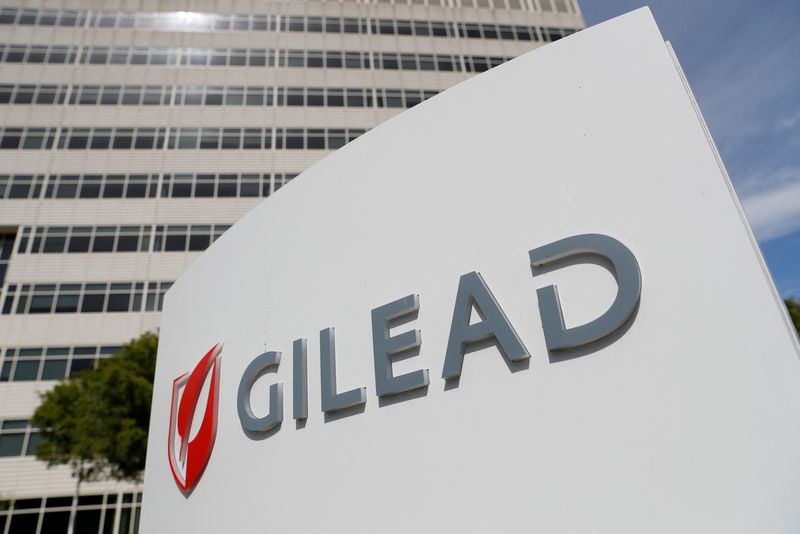By Michael Erman and Sriparna Roy
(Reuters) -Gilead Sciences Inc on Thursday reported a higher-than-expected fourth-quarter profit driven by strong demand for its HIV and cancer drugs, while COVID-19 antiviral Veklury had sales that were double Wall Street estimates.
The U.S. biotech company also forecast 2023 sales of $26 billion to $26.5 billion, ahead of analyst expectations of $25.8 billion, and adjusted earnings of $6.60 to $7 per share. The midpoint of the earnings forecast is also above analysts' estimates for $6.73 per share.
Gilead (NASDAQ:GILD) shares rose 3.8% to $84.48 in extended trading.
Sales of COVID-19 treatment remdesivir, sold under the brand name Veklury, were $1 billion, far beyond the $511 million analysts had expected even as they slowed 26% from the previous year.
While Veklury sales declined by about half in the United States and Europe as COVID hospitalization rates fell, they tripled in other international markets.
Gilead Chief Commercial Officer Johanna Mercier said the company believes the model for the COVID-19 treatment is "quite sustainable moving forward."
"It's still the only antiviral indicated at the hospital level at this point," Mercier said on a conference call with investors. "In many countries around the world, it is the treatment of choice when they decide to treat hospitalized patients."
The company said adjusted profit rose to $1.67 per share, ahead of analyst expectations of $1.50, according to Refinitiv data, and up from 69 cents per share a year earlier, when it took $1.85 billion in charges mostly for a legal settlement.
Quarterly revenue rose 2% to $7.4 billion, topping analysts' estimates of $6.64 billion.
Gilead's HIV sales increased 5% to $4.8 billion in the quarter, with Biktarvy rising 15% to $2.9 billion versus the $2.8 billion analysts expected.

Descovy sales rose 13% to $537 million, outstripping the analysts' forecast of $495 million.
Gilead's cancer franchise also saw sales increase by 71% to $419 million. Yescarta, a CAR-T lymphoma treatment, booked $337 million, while leukemia and lymphoma treatment Tecartus came in at $82 million.